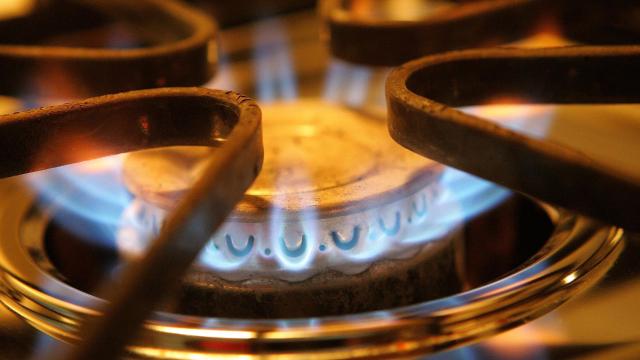The federal government may consider a ban on gas stoves thanks to mounting concerns about the health impacts of the appliances, Bloomberg reported Monday.
In an interview with Bloomberg, Richard Trumka, Jr., a commissioner at the U.S. Consumer Product Safety Commission, said the agency would consider a range of options, including restricting manufacturing or importing gas stoves and/or putting emissions standards on the products, to better protect U.S. consumers.
“This is a hidden hazard,” Trumka told Bloomberg. “Any option is on the table. Products that can’t be made safe can be banned.”
About 40 million U.S. households, or around 35%, currently have gas stoves. But scientists have cautioned for the past 40 years that these stoves, which can release unhealthy levels of pollutants like nitrogen dioxide, carbon monoxide, methane, and benzene, could be harming our health. Various research showing the health risks of gas stoves, from cardiovascular issues to cancer, is starting to sway public opinion and get more people concerned about the potential hazards.
Last month, a study published in the International Journal of Environmental Research and Public Health found that gas stoves could be responsible for as many as one in eight instances of childhood asthma in the U.S. And gas stoves aren’t great for the environment, either: They emit so much methane each year that one study found those emissions were the greenhouse gas equivalent of 500,000 gas-powered cars. More than three-quarters of those emissions happened when the stove wasn’t even in use.
In tandem with the growing body of research, some Democratic lawmakers have gotten increasingly louder about putting limits or restrictions on the appliances. Last month, a group of Democratic senators sent a letter to the chair of the Consumer Product Safety Commission asking for it to consider various requirements for gas stoves, including range hoods that meet certain standards and consumer-facing labels and education campaigns about the risks of gas stoves.
The push for safer stoves dovetails with a larger movement to ban natural gas hookups in buildings altogether — a movement that has picked up a surprising amount of steam. In 2019, Berkeley, California became the first city in the world to ban gas hookups in new buildings; less than four years later, dozens of cities have followed suit, including New York, whose ban, passed in late 2021, will go into effect for smaller buildings this year. In September, California became the first state to implement a phaseout of natural gas space and water heaters.
Unsurprisingly, the natural gas industry has been fighting these developments tooth and nail. In 2021, emails obtained by E&E News showed that the industry had been running a coordinated effort to support legislators in Republican states putting forward laws that would prohibit cities and towns from banning natural gas; 20 states, which make up about one-third of the U.S.’s total natural gas use, have passed bans-on-bans since 2020.
“The U.S. Consumer Product Safety Commission and EPA do not present gas ranges as a significant contributor to adverse air quality or health hazard in their technical or public information literature, guidance, or requirements,” Karen Harbert, president of the American Gas Association, told Bloomberg. “The most practical, realistic way to achieve a sustainable future where energy is clean, as well as safe, reliable and affordable, is to ensure it includes natural gas and the infrastructure that transports it.” (Yeah, ok.)
Gas stoves seem to have been selected as a special battleground for fossil fuel boosters, with industry interests pitching gas stoves as somehow superior. The industry has gone so far as to recruit Instagram influencers to wax poetic about their stoves, while environmental groups have accused gas interests of being behind restaurant industry challenges to local gas bans.
“There is this misconception that if you want to do fine-dining kind of cooking it has to be done on gas,” Trumka told Bloomberg. “It’s a carefully manicured myth.”
